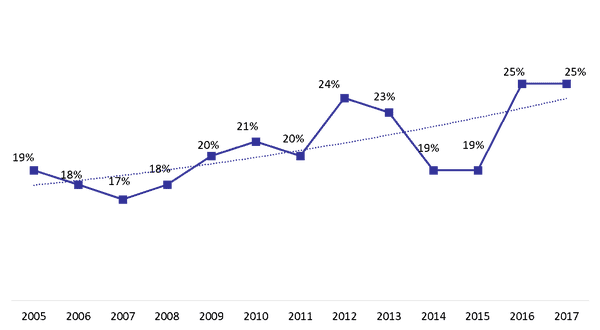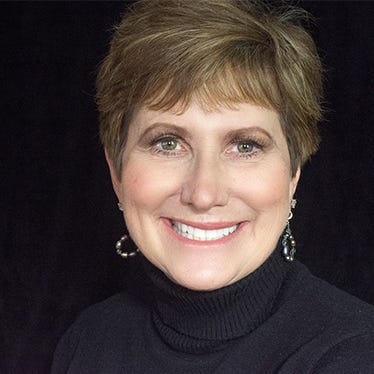The impact of sleeplessness on health and wellness
Consumers struggle to find restorative sleep so look to natural ingredient solutions to help ease their nighttime challenges.

Sleep is a necessary and important function for mental and physical health, although it is often difficult, elusive and overlooked. Health care professionals, such as those at the Mayo Clinic, recommend 7 to 9 hours each night. Sleep affects almost every type of tissue and system in the body—from the brain, heart and lungs to metabolism, immune function, mood and disease resistance, according to the National Institutes of Health (NIH).
Research conducted by Natural Marketing Institute (NMI) in its annual Health & Wellness Trends Study found one-quarter of U.S adults are currently managing or treating issues related to sleeplessness or sleep disorders. This represents over 63 million Americans who are experiencing poor sleep. This research provides insight into how lack of sleep affects the emotional and physical lives of sufferers and identifies marketplace opportunities to address this growing condition.
Lack of sleep is on the rise
Difficulties with sleep have been trending upward over the past decade or so. Since 2005, the portion of the general population who reported they are managing sleep issues has increased 32%. In fact, 43% reported their ability to get a good night’s sleep is worse today than it was 10 years ago. No doubt, this rising concern has many contributors, not the least of which is the busy 24/7 lifestyle that many Americans adopt. Such over-subscribed lifestyles, combined with poor eating habits and feedback cycles of stress leading to lack of quality sleep, fuel the problem.

Percent of U.S. General Population Currently Managing or Treating Conditions Related to Sleeplessness or Sleep Disorders
Despite sleep causing problems for so many people, most do understand that it is exceedingly important. A vast majority (88%) consider getting enough sleep extremely or very important in how they maintain a healthy lifestyle. Millennials seem to understand the importance of sleep as they show the strongest increase over the past 8 years in believing that sleep is a key factor in maintaining health and rating sleep higher than managing stress and consuming healthy foods.
The sleep, stress and energy cycle
While sleep is key to promoting good health, some of the top conditions that plague Americans are interconnected. Almost 6 in 10 “sleep managers” (as termed by NMI) are experiencing emotional troubles (stress, mood and anxiety), while almost 3 in 10 are dealing with a lack of energy/fatigue or weight issues. Difficulties in any or all these areas can lead to an overall lower quality of life. Understanding these interrelationships is vital to breaking the harmful cycle and providing consumers with relief and solutions.
Interconnectedness of Sleep, Stress and Related Concerns
Sleep is big business. According to Marketresearch.com’s “The U.S. Sleep Market,” the U.S. sleep industry generated nearly $29B in revenue in 2017 and is expected to grow at an average annual rate of 4.7% through 2023. This includes everything that consumers use to ward off sleep problems, from medicinal solutions to bedding products, gadgets and electronics.
According to NMI’s 2018 Supplement/OTC/Rx Study (SORD), 83% of sleep managers take something to address their sleeplessness. Most are using a prescription solution (36%), with about equal proportions relying on an over-the-counter (OTC) formulation (30%) or a nutritional/dietary supplement (28%). However, only a minority (16%) believe that the currently available supplements for sleep are very effective, perhaps explaining usage of other approaches and offering opportunities for new and better formulations.
The top dietary supplements used for sleeplessness include melatonin, essential oils, St. John’s Wort and hyaluronic acid (HA). CBD is a fast-growing market for many health conditions, sleep primary among them. Currently, 17% of those using CBD are doing so to manage sleep issues, a trend expected to grow as consumers become more aware of the benefits and availability widens.
Beyond medicinal solutions, many consumers rely on more comfortable bedding choices, relaxation techniques such as yoga, meditation or nighttime routines, and ideas to create a “sleeping sanctuary” in their bedrooms. Additionally, gadgets or electronic device solutions are used to help ward off sleep concerns. Almost half of the general population expressed interest in a small, wearable device to help them sleep better; this is notably higher among Millennials (60%).
Poor sleep issues clearly take a toll on Americans’ health. Given this is such a pervasive and growing concern, opportunities for solutions exist across many products, services and modalities including prescription medications, supplements, food and beverage, technology and alternative therapies.
Diane Ray is vice president, strategic innovation, at the Natural Marketing Institute (NMI). NMI is a strategic consulting, market research, and business development firm specializing in the health, wellness and sustainability marketplace.
About the Author
You May Also Like

